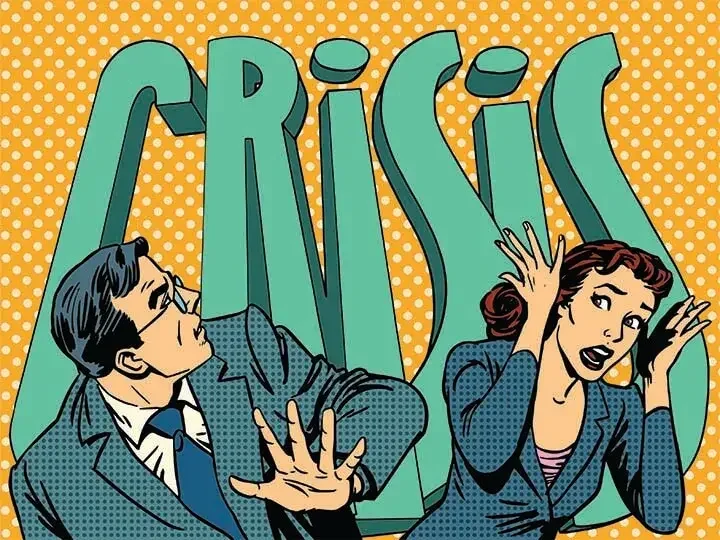Whether it's a crash in a company vehicle, a product malfunction, or an employee's errant social media post that went viral, crisis situations can occur in small to midsize businesses (SMBs) just as readily as in their larger counterparts. And the damage is often serious. Today, more than ever, smaller businesses need to handle a public relations crisis quickly to avoid fallout.

"There is perhaps no more crucial time in history to have a crisis plan—especially in the age of social media and the 24-hour news cycle," says Melissa DeLay, senior crisis communication director and owner of TruPerception, a Minneapolis-based communications firm, and author of The Truth about Scandal: The Everyday Guide to Navigating Business Crises. "Because reputations and businesses can be ruined in seconds by just one tweet gone viral, even small-business owners need to know what to say to avoid embarrassing scandal and controversy."
Most smaller companies need crisis planning because they can't afford to go through a crisis on their own, adds Jonathan Bernstein, founder of Monrovia, California-based crisis communications firm Bernstein Crisis Management. But, to get started, here are five steps to include in your crisis communication plan and immediate response.
1. Think about your risk
Brainstorm with your management team about the various crises that your business may face. These may include accidents, employee misconduct, product or service issues, natural disasters and others.
2. Identify your team members
Various types of crises require input and assistance from different team members. Identify the team members you may need as part of your response team. These may include the CEO and other members of the senior management team, as well as representatives from HR, finance and other areas of the company that might be affected. If your organization deals with hazards in manufacturing or other operations, include employees who oversee the handling of such substances. Bernstein recommends getting input from professionals, such as your attorney and perhaps a crisis communications expert.
"Creating your own crisis plan with no related training or experience is like a non-attorney representing themselves in court," he says. "There are some excellent textbooks on crisis communication that will at least provide the basic education needed to better understand the process, to include, often, a template crisis communications plan that can be adapted," he says.
You may not need all of these contacts for any given crisis. However, you'll want to have a list of possible crisis communication team members and their contact information so that you may reach out to them quickly in a crisis.
3. Designate your spokespeople
Having one or two designated spokespeople is essential to ensure messaging is uniform and that you disseminate accurate, unified information. DeLay suggests drafting responses based on how your team would address various crisis situations, so you have them ready quickly.
"These messages should address a range of issues, from simple ones like how to talk about yourself at a party, to the complicated ones like what to say when products fail or injuries occur," she says. Have your team members rehearse these messages. You may even consider planning ahead by sending one or two team members for media training in preparation for possible crises.
4. Identify key audiences
During times of crisis, many audiences may be affected, Bernstein says. Employees, customers, suppliers, shareholders and your community are all important audiences who need to know what is happening. Assign responsibility to your various team members to communicate to each audience and create a series of steps to do so. For example, if you need to keep employees informed about when the office will open again after a natural disaster, you may list the various forms of communication you have available to you and how you will use them.
5. Integrate the 'five tenets'
Bernstein encourages SMBs to keep the "five tenets" of crisis communication in mind when formulating plans. As you identify the channels of communication, be sure you're prepared to:
- Respond quickly. Otherwise, rumor and innuendo may fill the gap.
- Show compassion. If you don't deal with people's feelings first, they won't listen to the facts.
- Be honest. Don't mislead by commission, omission or understatement and/or exaggeration for the purpose of obfuscating the truth, otherwise known as "spinning."
- Inform. To the extent possible, share the who, what, why, when, where and how of the situation, as well as what you're doing in response.
- Interact. In this digital age, provide stakeholders with multiple ways to ask questions and engage in constructive commentary, such as phone, email and social media.
While these are basic steps, they will go a long way toward ensuring that you respond quickly and appropriately in times of crisis.

